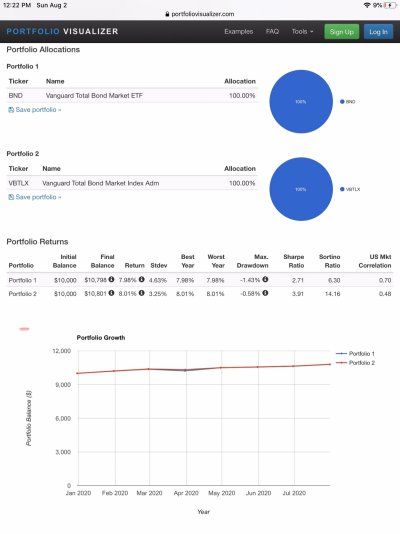Chuckanut
Give me a museum and I'll fill it. (Picasso) Give me a forum ...
Along those lines, I think buying individual junk bonds or international issues is foolish. In that sphere, paying a bond fund for its management expertise is probably going to be worth it. (But why would you buy risky assets into the "safe" portion of your AA? That's another thread.)
FWIW, DW and I are on the lunatic fringe here at E-R; we hold TIPS, bought individually rather than in a TIPS fund.
+1 on the junk and international bonds.
TIPS? Individually held? Yes, you are going to be on my list of Dangerous Radicals Who Infest This Site.

